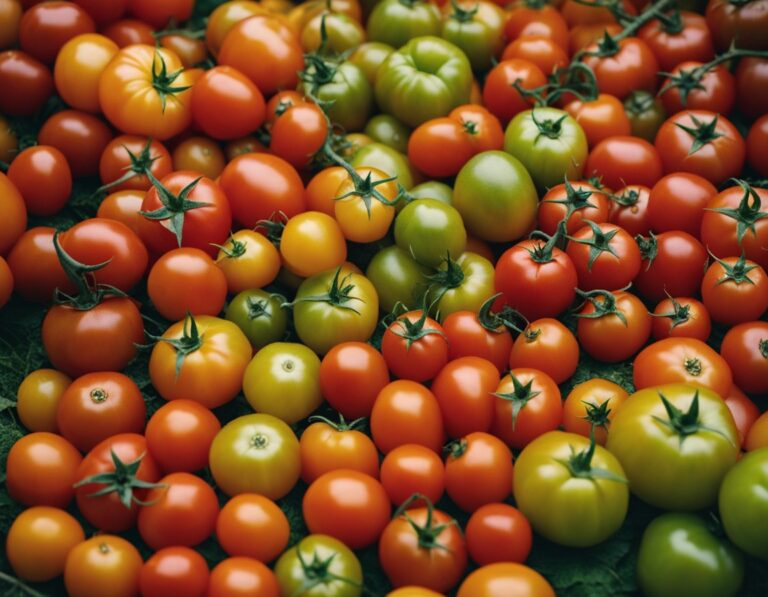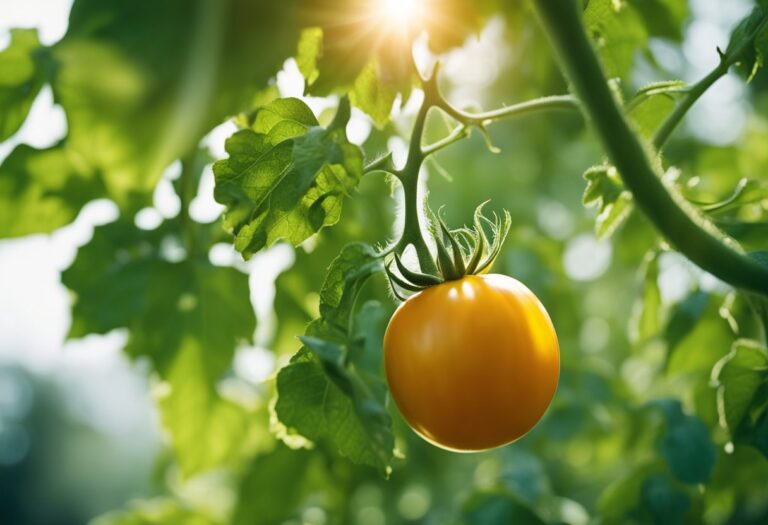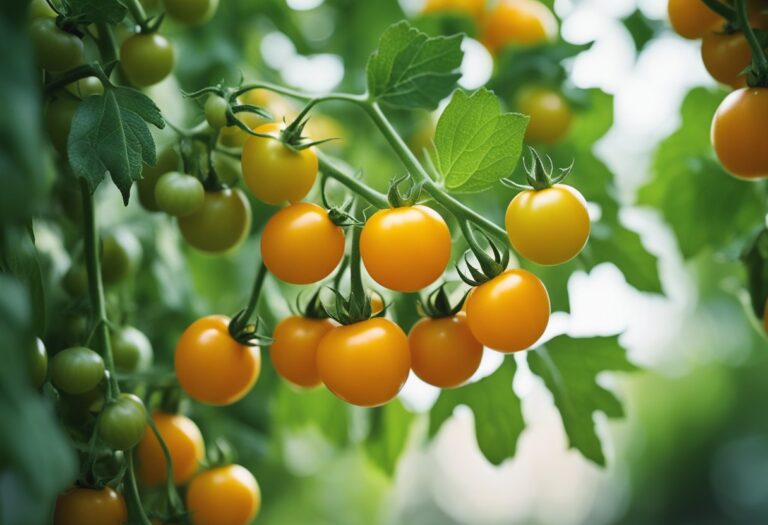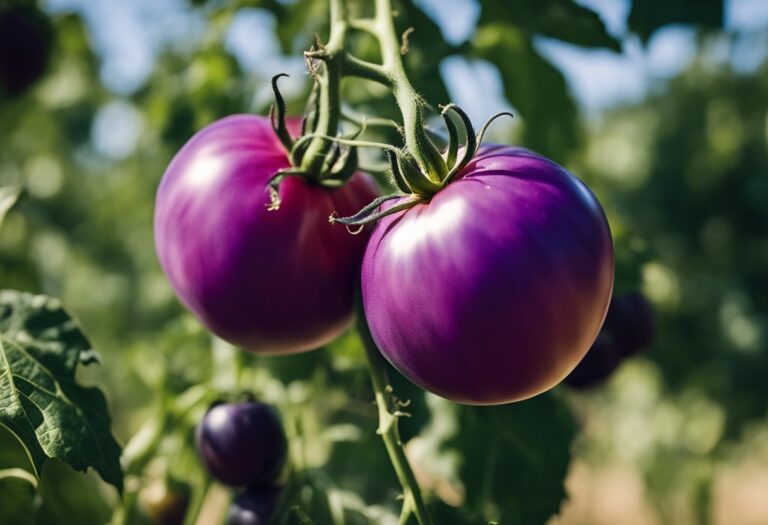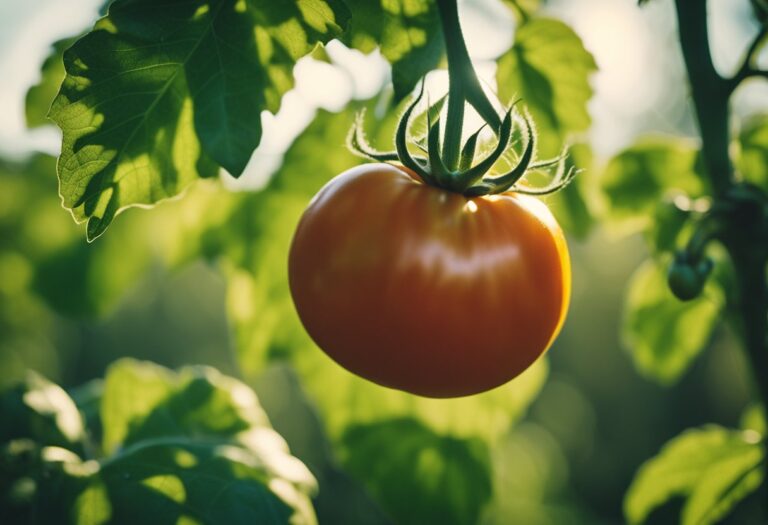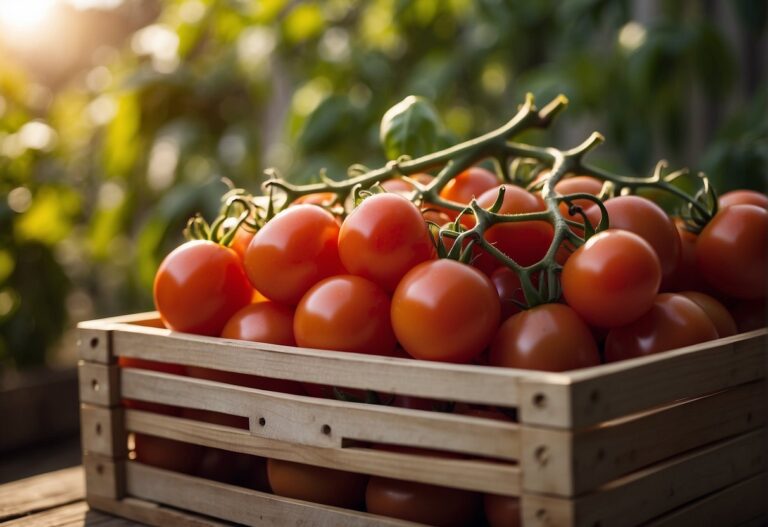Can Bearded Dragons Eat Tomatoes? A Friendly Guide to Feeding Your Pet Dragon
Bearded dragons are popular pets due to their unique appearance and docile nature. As with any pet, it’s important to ensure that they are receiving a balanced diet to maintain their health. While bearded dragons can eat a variety of fruits and vegetables, many owners wonder if tomatoes are safe to include in their pet’s diet.

Tomatoes are a fruit that is often used in human diets and can be found in many households. However, when it comes to feeding them to bearded dragons, there are some important considerations to keep in mind. In this article, we will explore whether or not bearded dragons can eat tomatoes and how to safely introduce them to your pet’s diet.
Key Takeaways
- Tomatoes should only be given to bearded dragons in moderation due to their high acidity and oxalate content.
- It’s important to monitor your bearded dragon’s health when introducing new foods to their diet.
- There are alternative fruits and vegetables that can provide similar nutritional benefits to tomatoes.
Understanding Bearded Dragons’ Dietary Needs

Bearded dragons are omnivores, which means they eat both plant and animal matter. In the wild, they primarily eat insects, but they also consume fruits and vegetables. A balanced diet for a bearded dragon should consist of 80% insects and 20% fruits and vegetables.
When it comes to feeding bearded dragons, it is important to understand their dietary needs. They require a variety of nutrients to maintain good health, including protein, fiber, vitamins, and minerals. Bearded dragons also require a proper calcium to phosphorus ratio in their diet to ensure healthy bone growth.
It is important to note that not all fruits and vegetables are safe for bearded dragons to consume. Some fruits and vegetables can be high in oxalates or acids, which can affect the calcium absorption in these reptiles if ingested in large amounts. Therefore, it is important to feed them in moderation and to avoid feeding them certain fruits and vegetables altogether.
To ensure that your bearded dragon is getting the proper nutrients, it is recommended to provide them with a variety of insects, such as crickets, mealworms, and waxworms, as well as a variety of fruits and vegetables, such as collard greens, kale, and carrots. It is also important to dust their food with calcium and vitamin D3 supplements to ensure proper absorption of calcium.
Overall, understanding bearded dragons’ dietary needs is crucial to their overall health and well-being. By providing them with a balanced diet that meets their nutritional requirements, you can help ensure that they live a long and healthy life.
Can Bearded Dragons Eat Tomatoes?

Bearded dragons are omnivorous, meaning they can eat both animal and plant-based foods. However, not all fruits and vegetables are safe for them to consume. One such food is tomatoes.
Nutritional Value of Tomatoes
Tomatoes are a good source of vitamins A, C, and K, as well as potassium and fiber. They also contain antioxidants such as lycopene, which may help prevent cancer and heart disease in humans.
However, bearded dragons have different nutritional needs than humans, and while tomatoes may be healthy for humans, they may not be suitable for bearded dragons.
Risks of Feeding Tomatoes to Bearded Dragons
Tomatoes contain oxalates and acid that can affect calcium absorption in bearded dragons if ingested in large amounts. Calcium is crucial for the proper development and maintenance of their bones, and a lack of calcium can lead to metabolic bone disease (MBD). Therefore, bearded dragons should not be fed tomatoes on a regular basis.
In addition, the stem, leaves, and unripe tomatoes of the plant are not considered safe for bearded dragons to consume. They should only be given a small amount of ripe tomato, chopped into small pieces, as an occasional treat.
Overall, while bearded dragons can eat tomatoes in moderation, they should not be a regular part of their diet. It is essential to provide them with a balanced diet that meets their nutritional needs and consult with a veterinarian if there are any concerns about their diet.
How to Safely Introduce Tomatoes to Your Bearded Dragon
Bearded dragons can eat tomatoes as an occasional treat, but it’s important to introduce them safely to avoid any potential health problems. Here are some tips to help you safely introduce tomatoes to your bearded dragon.
Preparing the Tomatoes
Before feeding tomatoes to your bearded dragon, it’s important to prepare them properly. Wash the tomatoes thoroughly to remove any dirt or pesticides. Cut them into small, bite-sized pieces to make them easier for your bearded dragon to eat. Remove the seeds and skin, as they can be difficult for your bearded dragon to digest.
Serving Size and Frequency
Tomatoes should only be given to your bearded dragon as an occasional treat. They should not be a regular part of their diet. A good rule of thumb is to feed your bearded dragon no more than one small piece of tomato per week. Overfeeding tomatoes or any other food can lead to obesity and other health problems.
It’s also important to monitor your bearded dragon’s eating habits when introducing new foods. If your bearded dragon shows any signs of discomfort or digestive issues after eating tomatoes, stop feeding them immediately and consult a veterinarian.
By following these tips, you can safely introduce tomatoes to your bearded dragon and provide them with a healthy and balanced diet.
Alternatives to Tomatoes in a Bearded Dragon’s Diet
Bearded dragons can eat a variety of fruits and vegetables, but not all of them are safe for them. If you want to add variety to your bearded dragon’s diet, here are some alternatives to tomatoes that you can include:
Vegetables and Fruits
- Greens – Greens are an excellent source of vitamins and minerals for bearded dragons. Some good options include collard greens, mustard greens, and turnip greens. These greens are also low in oxalates, which can be harmful to bearded dragons.
- Squash – Squash is also a good source of vitamins and minerals for bearded dragons. Some good options include butternut squash, acorn squash, and spaghetti squash. Squash is also low in oxalates.
- Berries – Berries are a great source of vitamins and antioxidants for bearded dragons. Some good options include strawberries, raspberries, and blackberries. Be sure to remove the seeds before feeding them to your bearded dragon.
Insects and Other Protein Sources
- Crickets – Crickets are a staple in a bearded dragon’s diet. They are high in protein and low in fat. Be sure to gut-load the crickets before feeding them to your bearded dragon.
- Dubia Roaches – Dubia roaches are another good source of protein for bearded dragons. They are also low in fat and high in calcium. Be sure to gut-load the roaches before feeding them to your bearded dragon.
- Mealworms – Mealworms are a good source of protein, but they are also high in fat. Be sure to feed them in moderation and gut-load them before feeding them to your bearded dragon.
Remember to always research the foods you want to feed your bearded dragon to ensure they are safe and healthy. Also, be sure to provide a balanced diet that includes a variety of fruits, vegetables, and protein sources.
Monitoring Your Bearded Dragon’s Health
It’s important to monitor your bearded dragon’s health regularly, especially after feeding them a new food. While tomatoes are safe for bearded dragons to eat in moderation, they do contain high levels of acid and oxalates, which can affect calcium absorption if ingested in large amounts.
Some signs that your bearded dragon may be experiencing health issues include lethargy, loss of appetite, diarrhea, and abnormal stool consistency. If you notice any of these symptoms, it’s important to consult with a veterinarian who specializes in reptiles.
In addition to monitoring your bearded dragon’s health, it’s also important to ensure that they are receiving a balanced diet. While tomatoes can be a healthy addition to their diet, they should not be a staple food. A balanced diet for bearded dragons should consist of 80% vegetables and 20% insects.
To ensure that your bearded dragon is receiving a balanced diet, it’s important to provide them with a variety of vegetables and insects. Some vegetables that are safe for bearded dragons to eat include collard greens, mustard greens, and butternut squash. Insects that are safe for bearded dragons to eat include crickets, mealworms, and dubia roaches.
Overall, while tomatoes can be a healthy addition to your bearded dragon’s diet, it’s important to monitor their health and ensure that they are receiving a balanced diet. By doing so, you can help ensure that your bearded dragon remains healthy and happy.
Frequently Asked Questions
Are tomatoes safe for bearded dragons to consume occasionally?
Yes, bearded dragons can safely consume tomatoes occasionally. However, it is important to note that tomatoes should not be a staple food in their diet. Tomatoes are high in oxalates and acid, which can affect the calcium absorption in these reptiles if ingested in large amounts. Therefore, it is recommended to feed tomatoes in moderation.
What vegetables are recommended for a bearded dragon’s diet?
Bearded dragons should have a diet that consists of 50% vegetation and 50% animal protein. The plant portion of an adult bearded dragon’s diet should consist of around 80-90% leafy greens and flowers, with the remaining 10-20% being fresh vegetables and fruits.
Some vegetables that are recommended for a bearded dragon’s diet include collard greens, mustard greens, kale, and turnip greens.
How often can bearded dragons have tomatoes in their diet?
Bearded dragons can have tomatoes occasionally in their diet, but they should not be fed too frequently. It is recommended to feed tomatoes once or twice a week at most. This will help ensure that the bearded dragon’s calcium absorption is not affected by the oxalates and acid found in tomatoes.
Is it safe for bearded dragons to eat the seeds of tomatoes?
No, it is not safe for bearded dragons to eat the seeds of tomatoes. Tomato seeds contain a substance called solanine, which can be toxic to bearded dragons if ingested in large amounts. Therefore, it is recommended to remove the seeds before feeding tomatoes to bearded dragons.
Can bearded dragons have cucumbers along with tomatoes?
Yes, bearded dragons can have cucumbers along with tomatoes. Cucumbers are a safe and healthy addition to a bearded dragon’s diet. However, it is important to note that cucumbers should not be a staple food in their diet and should be fed in moderation.
What fruits should be avoided to ensure a bearded dragon’s health?
Bearded dragons should avoid fruits that are high in oxalates, such as rhubarb and spinach. Additionally, fruits that are high in sugar should also be avoided, such as bananas and grapes. Fruits that are safe for bearded dragons to consume in moderation include strawberries, blueberries, and raspberries.

